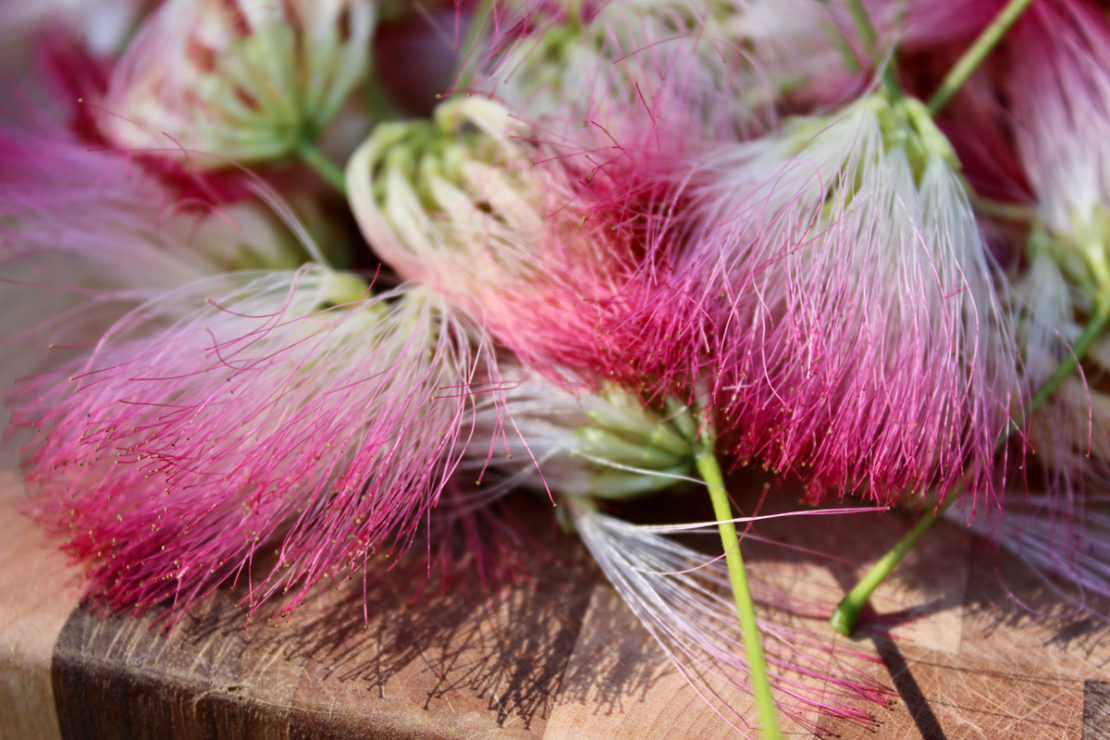
Practices and Herbs for Happiness
Given the drastic upheaval that has touched all of our lives in 2020, feeling a bit more stressed or run ragged than normal is to be expected. We are living in unprecedented times—a time of great hope and potential and also a time of great loss and uncertainty for many. If you wake up most mornings feeling less than wonderful, you are certainly not alone. Perhaps “OK” is the new “great.” Yet, there are ways in which we can move toward happiness and wellness—even during the most challenging times. This article will explore practices and herbs for happiness, elucidating practical ways in which you can take steps toward greater wellbeing.
Practices to Cultivate Happiness
There are plenty of herbal allies that can help boost mood. But before I dive into botanical supports, let’s examine some life choices that have been proven to contribute to happiness. Some of the results may be surprising.
Selfless Service
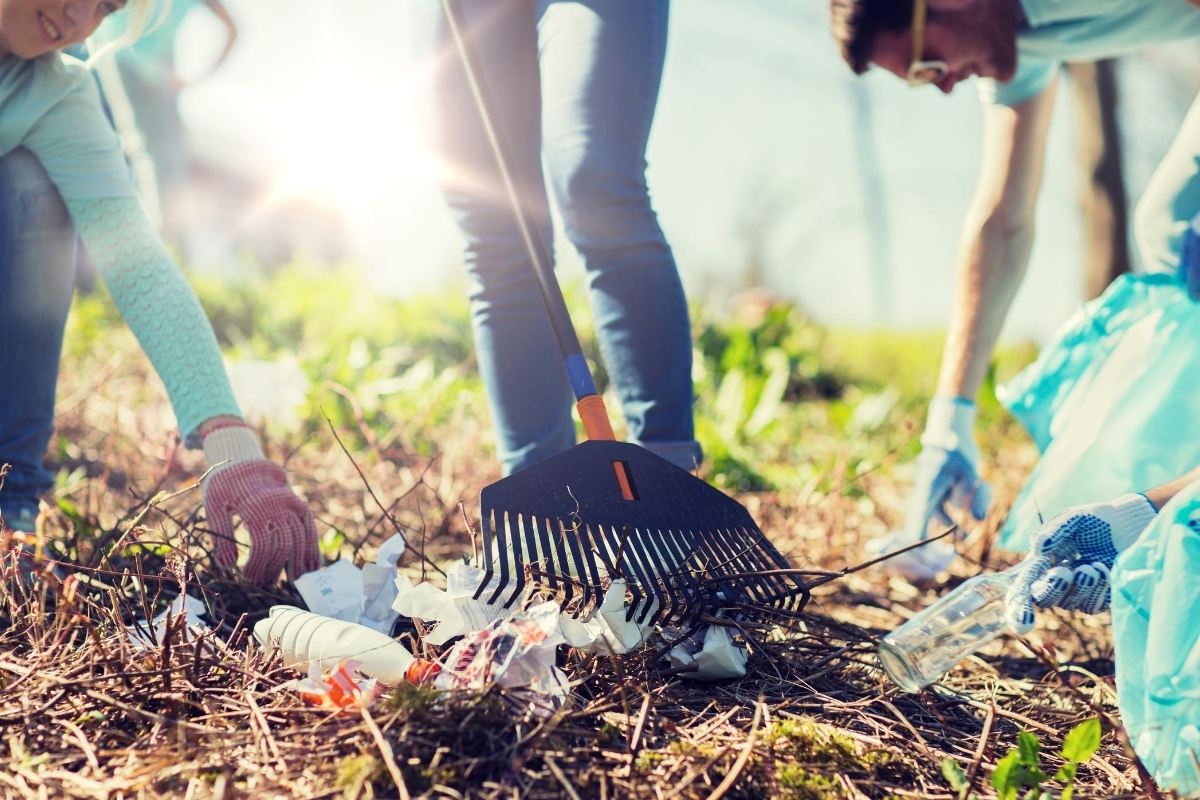
Giving time and resources without expectation can have remarkable effects on both physical and emotional health. Ayurvedic practitioner and neurologist Dr. Rammohan Rao (2020) makes selfless service a regular habit. He illustrates the many benefits of selfless service—for the giver as well as the recipient. Donating one’s time and resources without any expectation for personal gain can help ward off depression, build self-esteem, and even increase lifespan (Rao, 2020).
Furthermore, when you engage in selfless service, your body releases mood-boosting chemicals such as dopamine, oxytocin, and endorphins. This can create a sense of tranquility, serenity, and even euphoria (Rao, 2020). In fact, psychologists have coined the term “helper’s high” to describe the state of euphoria that can result from engaging in charitable activity. To take this a step further, evening thinking about giving to charity can light up pleasure centers in the brain (Baraz & Alexander, 2010).
The Power of Generosity
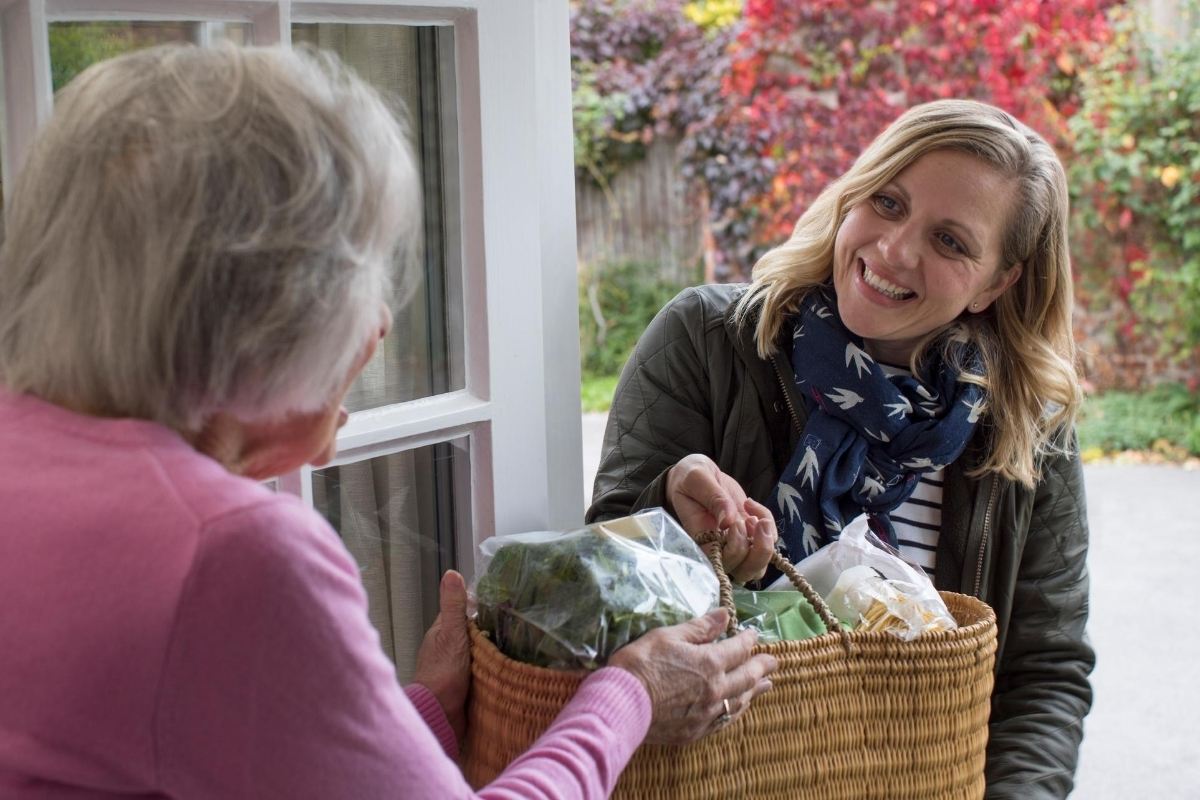
Have you ever experienced the urge to treat yourself at the end of a tough day? Now here is a happiness tip that underscores the power of service and generosity. Giving to others actually has a greater positive impact on your happiness than treating yourself. For instance, if you have a bad day at work, the tendency may be to treat yourself to a dessert, a nice meal, or a spa treatment at the end of the day. However, Yale professor and researcher, Laurie Santos (2020) explains that you will actually feel better if you treat someone else, and that spending money on others actually makes us happier than spending money on ourselves. So, if you are feeling frustrated or low, rather than getting a gift for yourself, consider making, doing, or buying something nice for someone else (Harris, 2020).
Talk to Strangers

Laurie Santos (2020) also shares some interesting information about the value of talking to strangers. Those who talk to strangers tend to be happier on the whole. For the introverts among us, this may challenge us to stretch the boundaries of our comfort zone. But given what the experts say, breaking through initial shyness and introversion is worth it.
The next time you are in a public place—waiting in line at the coffee shop for instance—rather than keeping to yourself, try striking up a casual conversation with the barista or one of your fellow customers. If talking to strangers isn’t your habit, Santos (2020) recommends taking baby steps toward breaking out of shyness and typical social boundaries and then observing how those experiences make you feel. These conversations don’t need to be deep or extremely personal, but the research shows that talking to strangers does positively contribute to happiness in a significant way (Harris, 2020).
Meaningful Work
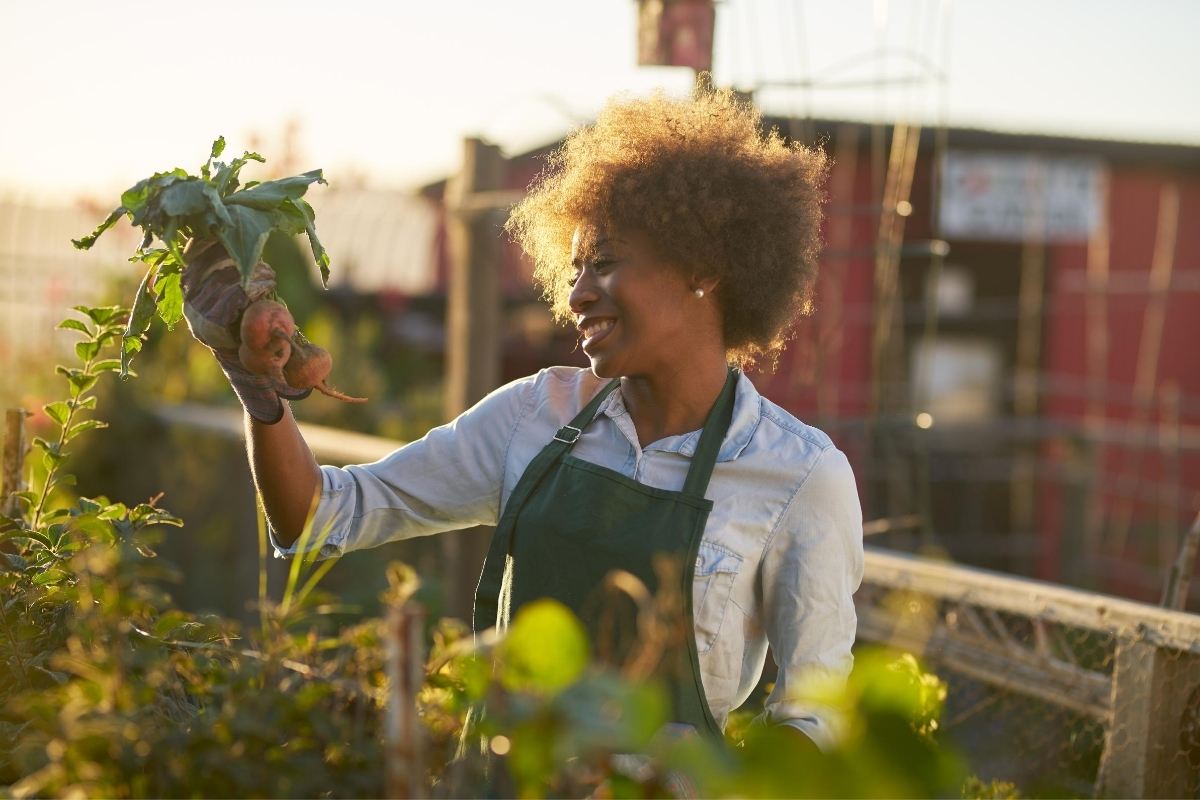
Given how much of our lives many of us spend working, finding work that supports our happiness is a common quest. However, again, the research may be surprising. Do well-paying prestigious jobs contribute to happiness? As it turns out, not so much (Santos, n.d.). The data tells us that you cannot in fact buy happiness. In her podcast, the Happiness Lab, Laurie Santos (n.d.) offers up some fascinating evidence once again: as long as you are at least making a living wage, there is actually no correlation between increased income and higher levels of happiness. Of course, if you are not making a living wage or you are being mistreated in the workplace, that can definitely impact your wellbeing in many ways.
Then what does contribute to happiness in the workplace? Work that is varied, challenging, and meaningful (Santos, n.d.). In her podcast, The Happiness Lab, Santos (n.d) brings to life the story of an exterminator who finds great satisfaction in his job because it possesses the three magic traits: variety, challenge, and sense of purpose. So if you feel like your work is dragging you down, consider how you can incorporate more of these qualities into your regular tasks and responsibilities, or adjust your attitude, habits, and approach to your work so you can experience it in this way. Finding variety, challenge, and meaning in what you do may help boost your happiness levels and job satisfaction.
Herbs for Happiness
While our mental outlook and choices have a tremendous impact on our happiness levels, the support offered by our herbal allies should not be underestimated. When you think of herbs to support mood, your mind may go to nervines such as lemon balm (Melissa officinalis) or St. John’s wort (Hypericum perforatum). These can be excellent choices, but let’s take a look at a few herbs for happiness that may be less common.
Cardamom (Elettaria cardamomum) seeds
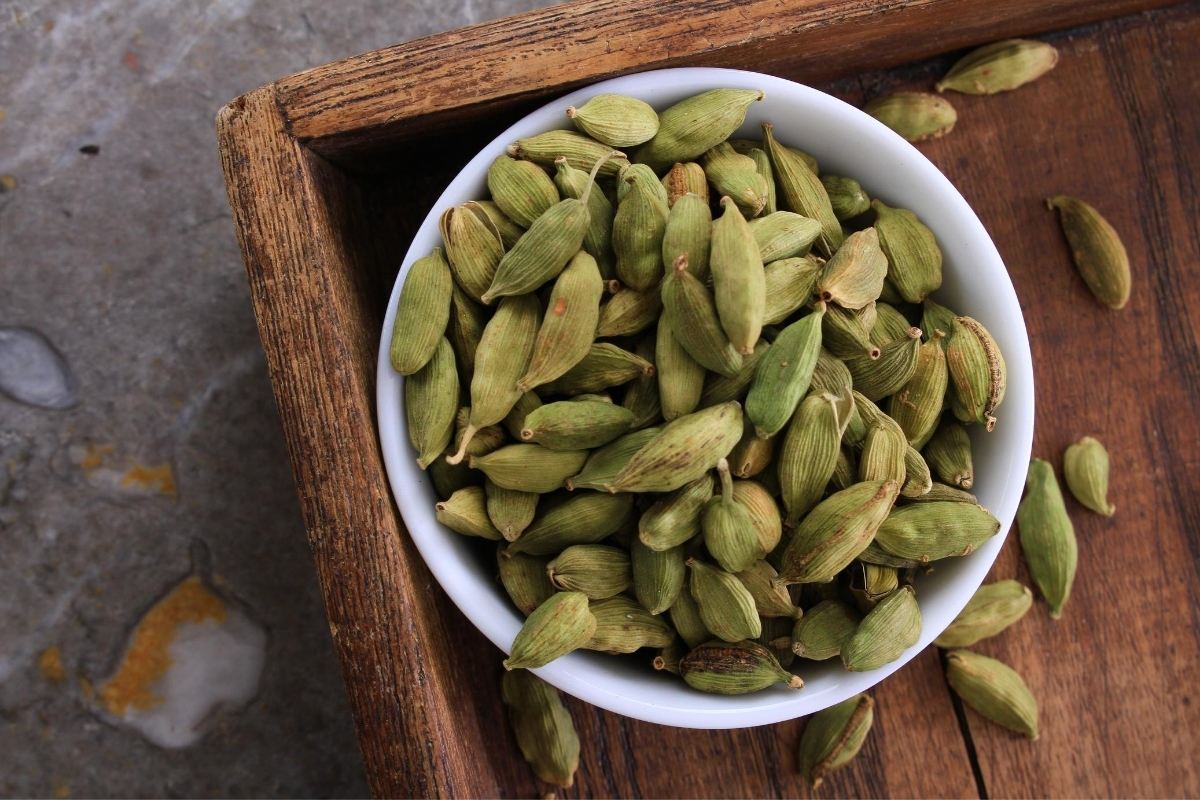
Commonly thought of as an aromatic cooking spice, the benefits of cardamom (Elettaria cardamomum) seeds are many. Not only does cardamom work as a digestive stimulant and carminative, easing the assimilation of sweets and dairy products in particular (Dass, 2013); it also has an affinity for the heart and gently stimulates circulation (Dass, 2013). Furthermore, cardamom is considered sattvic (purifying and clarifying) on an energetic level and is helpful for sharpening and refreshing the mind (Dass, 2013). So if you are feeling foggy, groggy, and down, consider cardamom for supporting a clear mind. A little extra pinch of aromatic ground cardamom in my morning chai certainly adds a subtle happiness boost to my day. Plus, cardamom activates similar dopamine pathways in the brain as sugar, so it is useful for quelling sweet cravings (Chaudhary, 2016).
Damiana (Turnera diffusa) leaf and stem
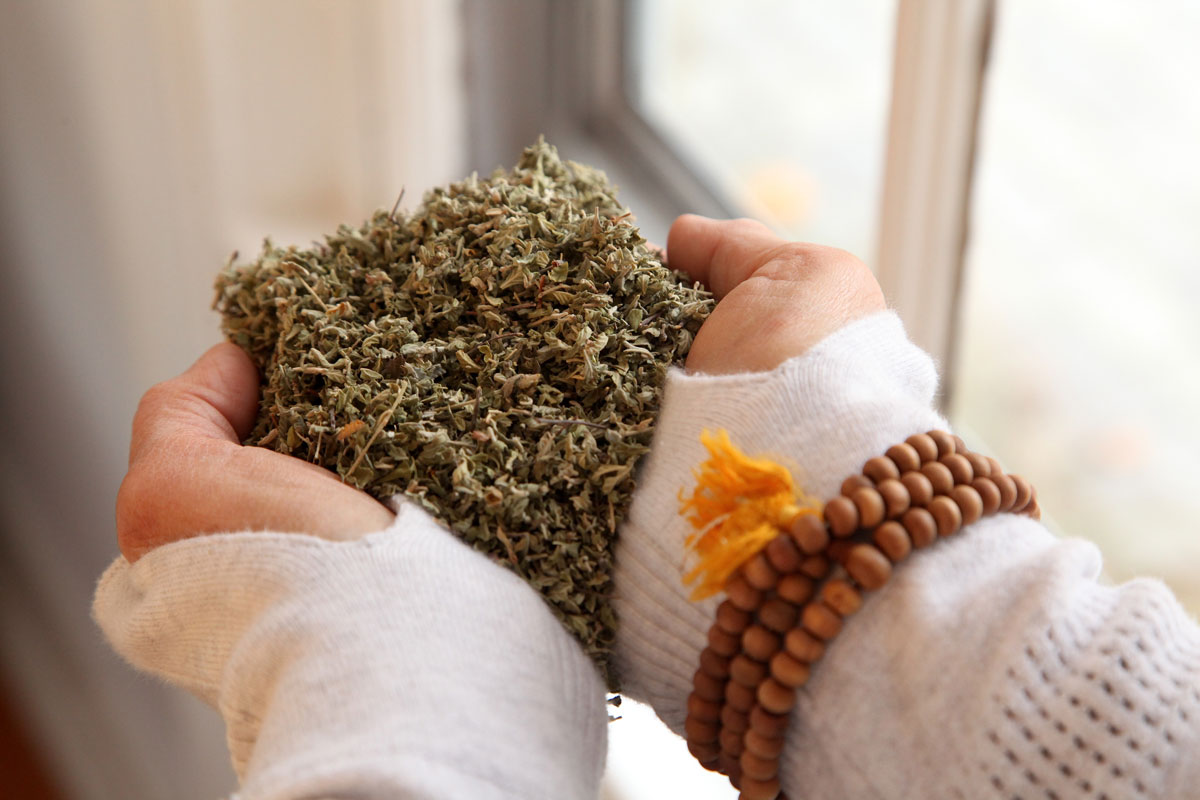
A fiery herb with the capacity to boost libido, desire, and excitement, damiana (Turnera diffusa) leaf and stem is widely considered an aphrodisiac (Herbal Academy, 2015). However, it is also a relaxing nervine that works well to uplift and energize the spirit (Groves, 2016). Herbalist and author David Hoffmann (n.d.) describes damiana as possessing an antidepressant action, being tonifying to the central nervous system and endocrine system, and particularly useful for emotional imbalances in which there is a sexual factor (Hoffmann, n.d.). Hoffmann (n.d.) suggests 1-3 mL of the tincture 3x/day.
Kapi Kacchu (Mucuna pruriens) seed
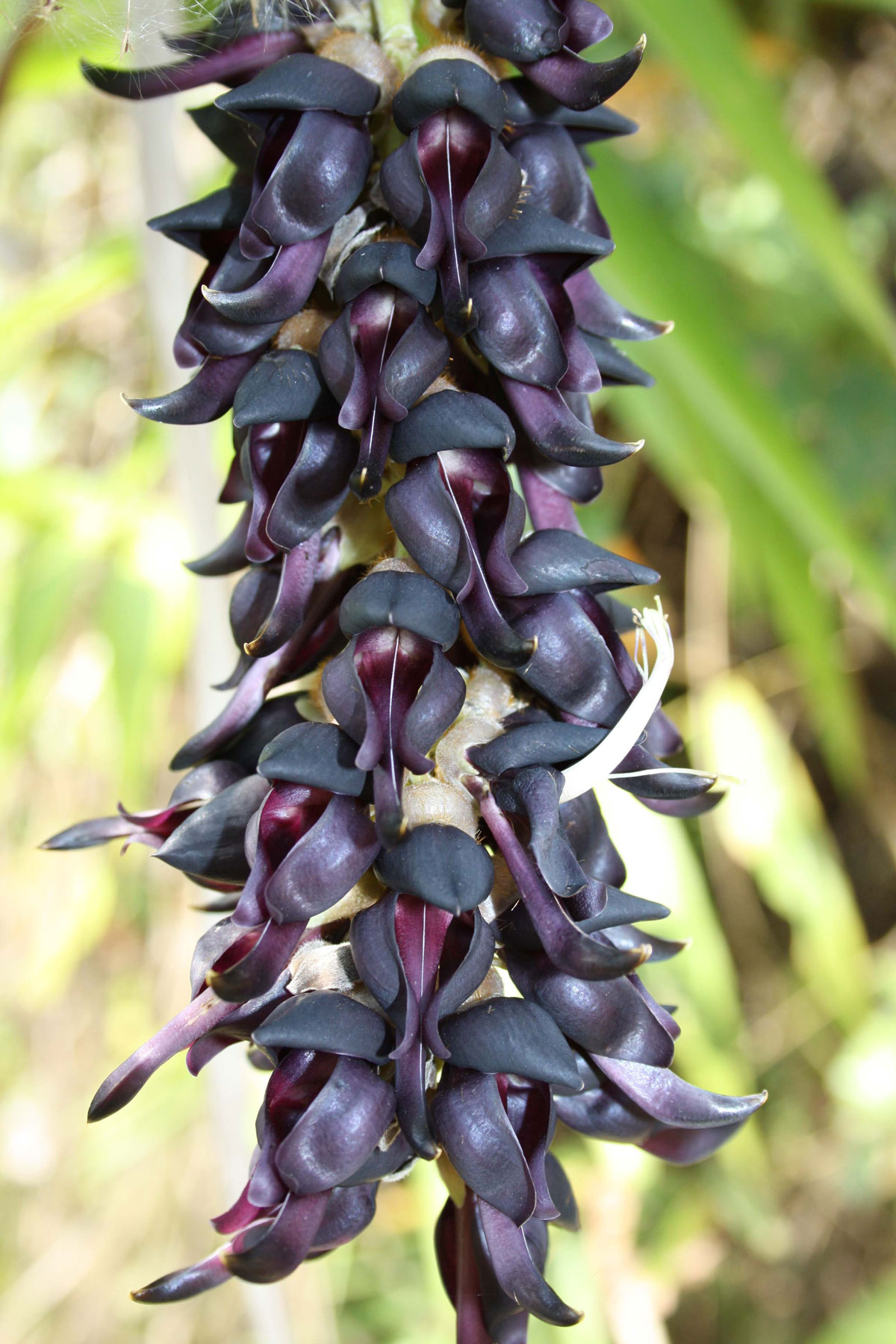
Kapi kacchu (Mucuna pruriens) seed is a wonderfully rejuvenating herb for happiness that is perhaps little known outside of Ayurveda. It has a warming energy and a nourishing effect on all bodily tissues, most notably the muscles, nerves, and sexual organs (Dass, 2013). One of kapi kacchu’s most promising applications is in cases of Parkinson’s disease, known as kampavata in Ayurveda. This is because the seed contains L-dopa, a key precursor to dopamine (Dass, 2013). Individuals with Parkinson’s demonstrate dopamine deficiency. Hence, the usefulness of kapi kacchu. However, this rejuvenating, dopamine-boosting herb may be helpful for anyone who needs a bit of revitalizing and mood support. With it’s warm energy and nourishing qualities, kapi kacchu is particularly useful for vata-type imbalances (Dass, 2013). The recommended dosage is 3-15 grams per day, taken as an infusion, decoction, or extract (Dass, 2013).
Mimosa (Albizia julibrissin) bark, twigs, and flowers
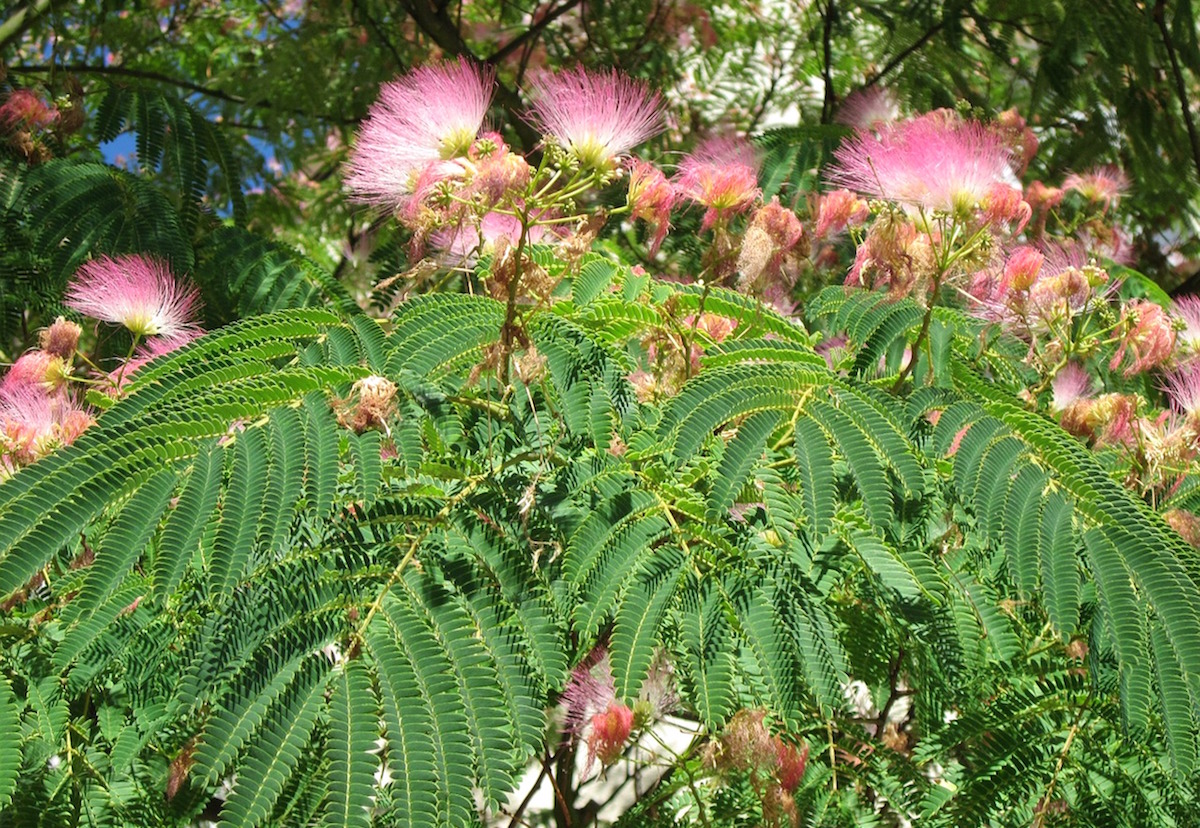
Mimosa (Albizia julibrissin) is a tree that bears beautiful puffy pink flowers. It grows abundantly throughout the southeastern United States and is traditionally used in Chinese medicine (Groves, 2016). Mimosa is employed by herbalists in cases of anxiety, depression, insomnia, grief, and emotional tension. It both calms and uplifts, making it a key herb for happiness (Groves, 2016). The suggested dosage for mimosa tincture is 1-3 mL 1-3x/day (Groves, 2016). Consider adding a couple dropperfuls of the tincture to sparkling water for a pleasant warm weather pick-me-up.
In Closing,
It is clear that happiness cannot be bought, bartered, or manufactured. However, by staying connected to others, living generously, and offering our gifts wholeheartedly, we certainly have a better shot at happiness. Also, our plant friends can offer tremendous support when it comes to emotional balance. I hope this article inspires you to try some new practices and herbs for supporting happiness.

REFERENCES
Baraz, J., & Alexander, S. (2010). The helper’s high. Greater Good Magazine. Retrieved from https://greatergood.berkeley.edu/article/item/the_helpers_high
Chaudhary, K. (2016). The prime: Prepare and repair your body for spontaneous weight loss. Harmony Books.
Dass, V. (2013). Ayurvedic herbology. Twin Lakes, WI: Lotus Press.
Groves, M. (2016). Body into balance: An herbal guide to holistic self-care. North Adams, MA: Storey Publishing.
Harris, S. (2020, April 10). The Science of Happiness (No. 196). [Audio podcast episode]. In Making sense. https://samharris.org/podcasts/196-science-happiness/
Herbal Academy (2015). Love it up with herbal aphrodisiacs. Retrieved from https://theherbalacademy.com/love-it-up-with-herbal-aphrodisiacs/
Hoffmann, David (n.d.). Damiana: Herbal medicine materia medica. Retrieved from http://www.healthy.net/Materia_Medica/Damiana_Herbal_Materia_Medica/196
Rao, R. (2020). Good living practices. KaivalyaWellness.com.
Santos, L. (n.d.). Working Your Way to Happiness (No. 4). In The Happiness Lab. https://www.happinesslab.fm/season-2-episodes/episode-4-working-your-way-to-happiness








